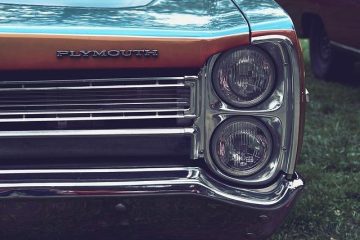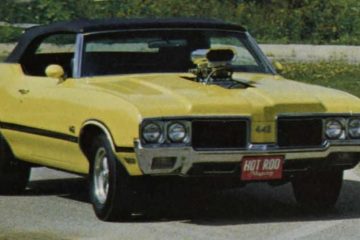Step back in time to the swinging 60s, where sleek designs and powerful engines ruled the roads. In the world of automotive excellence, Plymouth stood out with its iconic car models that left a lasting impression on enthusiasts and collectors alike. Join us on a journey through the fascinating lineup of Plymouth vehicles from the 1960s, each one a masterpiece of style, innovation, and timeless appeal. Let’s rev up the engines and take a nostalgic drive down memory lane to explore the charm and charisma of Plymouth car models from the golden era of motoring.
Table of Contents
- Exploring the Iconic Plymouth Car Models of the 1960s
- Unveiling the Timeless Design Features of Plymouth Cars from the 1960s
- Unlocking the Performance and Innovation of Plymouth Vehicles in the 1960s
- Expert Tips for Collectors: Navigating the World of Vintage Plymouth Car Models
- Q&A
- In Summary


Exploring the Iconic Plymouth Car Models of the 1960s
In the vibrant era of the 1960s, Plymouth introduced a lineup of iconic car models that left a lasting mark on automotive history. These vehicles embodied the spirit of innovation and style, capturing the essence of the decade’s cultural revolution. Let’s delve into the unique features and designs that defined Plymouth cars of the 1960s.
Unleashing Performance: Plymouth’s 1960s models were not just cars; they were powerful machines designed to conquer the open road. From the sleek Plymouth Barracuda to the legendary Plymouth Road Runner, each model boasted impressive performance capabilities that set them apart from the competition. With potent engines and cutting-edge technology, these cars redefined the driving experience for enthusiasts of the era.
Timeless Design: The aesthetic appeal of Plymouth cars from the 1960s reflected the classic elegance and futuristic visions of the time. Sleek lines, bold colors, and iconic details characterized models like the Plymouth Fury and Plymouth GTX, making them instant classics. Whether cruising down the highway or showcased at a car show, these vehicles exuded charm and sophistication, leaving a lasting impression on all who encountered them.
| Model | Year | Key Feature |
|---|---|---|
| Plymouth Barracuda | 1964 | Introduced as America’s first pony car |
| Plymouth Road Runner | 1968 | Performance-oriented muscle car |
Unveiling the Timeless Design Features of Plymouth Cars from the 1960s
In the realm of automotive history, the 1960s Plymouth cars stand out as iconic symbols of timeless design and innovation. These vehicles encapsulate an era of elegance and sophistication, featuring distinctive features that continue to mesmerize enthusiasts and collectors alike.
<p>From the sleek lines of the <strong>Plymouth Barracuda</strong> to the powerful stance of the <strong>Plymouth Road Runner</strong>, each model exudes a unique charm that reflects the spirit of the swinging sixties. The attention to detail in the <strong>Plymouth Fury</strong> and the classic appeal of the <strong>Plymouth Valiant</strong> serve as testaments to the craftsmanship and artistry of a bygone era.</p>

Unlocking the Performance and Innovation of Plymouth Vehicles in the 1960s
In the vibrant era of the 1960s, Plymouth car models dazzled enthusiasts with their performance and innovative designs. These vehicles were more than mere machines; they were symbols of a dynamic decade filled with excitement and progress. From sleek coupes to powerful muscle cars, Plymouth captured the spirit of the times and continues to be celebrated for its lasting impact on automotive history.
Key Highlights of Plymouth Vehicles in the 1960s:
- Iconic Designs: Plymouth cars of the 1960s featured distinctive styling cues that set them apart from the competition.
- Powerful Engines: With a range of engine options, Plymouth vehicles offered impressive performance for drivers seeking thrills on the open road.
- Innovative Features: From advanced safety technologies to cutting-edge amenities, Plymouth cars of the 1960s were at the forefront of automotive innovation.
Exploring the Legacy of Plymouth Models:
- Cultural Influence: Plymouth vehicles from the 1960s left a lasting impact on popular culture, making appearances in movies, TV shows, and music.
- Collectibility: Today, vintage Plymouth models from the 1960s are highly sought after by collectors and automotive enthusiasts alike.
- Heritage and Heritage: The legacy of Plymouth vehicles from the 1960s continues to inspire a new generation of car enthusiasts, honoring a golden age of automotive excellence.


Expert Tips for Collectors: Navigating the World of Vintage Plymouth Car Models
In the thrilling world of vintage Plymouth car models from the 1960s, collectors are often on the lookout for hidden gems and rare finds that evoke nostalgia and admiration. To navigate this realm of automotive treasures effectively, here are some expert tips to enhance your collecting journey:
- Uncover the charm of classics like the Plymouth Barracuda and Fury.
- Delve into lesser-known models such as the Valiant and Belvedere for a unique collection.
- Research special edition releases and limited production runs for exclusive additions to your portfolio.
When building your collection, pay attention to the condition of each model to ensure authenticity and value preservation. Look for well-maintained vehicles with original features intact, as these often command higher market prices and collector appeal. By immersing yourself in the history and design intricacies of vintage Plymouth car models from the 1960s, you can curate a collection that reflects your passion for classic automobiles while enjoying the thrill of the hunt for rare and exceptional pieces.
Q&A
Q: What were some popular Plymouth car models from the 1960s?
A: The 1960s were an exciting time for Plymouth, with several memorable car models hitting the roads. Some of the most popular ones included the Plymouth Barracuda, Plymouth Belvedere, Plymouth Fury, and the iconic Plymouth Road Runner.
Q: What made the Plymouth Barracuda stand out during the 1960s?
A: The Plymouth Barracuda was known for being one of the first pony cars ever produced, beating the Ford Mustang to market by a few weeks in 1964. Its distinctive fastback design and sporty appeal set it apart from the competition.
Q: How did the Plymouth Belvedere make its mark in the 1960s?
A: The Plymouth Belvedere gained popularity in the 1960s for its sleek styling and powerful engine options. It became a favorite among car enthusiasts and families alike for its reliability and performance.
Q: What set the Plymouth Fury apart from other car models of the 1960s?
A: The Plymouth Fury was renowned for its size and power, offering a range of V8 engine choices to cater to different drivers’ preferences. Its bold design and commanding presence made it a standout on the road.
Q: Why is the Plymouth Road Runner considered an iconic car from the 1960s?
A: The Plymouth Road Runner is celebrated for its affordability and high performance, embodying the spirit of the muscle car era. Its no-nonsense approach to speed and power made it a favorite among drag racers and car enthusiasts alike.
In Summary
As we wrap up our nostalgic journey through the iconic Plymouth car models of the 1960s, we can’t help but marvel at the timeless beauty and enduring legacy of these classic automobiles. From the sleek lines of the Barracuda to the powerful presence of the Road Runner, each model captured the spirit of an era filled with innovation and style.
While these vintage gems may belong to a bygone era, their allure lives on in the hearts of car enthusiasts and collectors worldwide. Whether you’re a seasoned fan or a newcomer to the world of classic cars, exploring the history and charm of Plymouth’s 1960s models is sure to ignite a passion for automotive excellence.
So, as we bid farewell to the chrome-clad glory days of Plymouth in the 1960s, let’s carry forth the spirit of innovation, design, and pure driving pleasure that defined these legendary vehicles. Remember, the road ahead may be long, but with a touch of retro flair and a dash of vintage elegance, every journey becomes a timeless adventure.




0 Comments